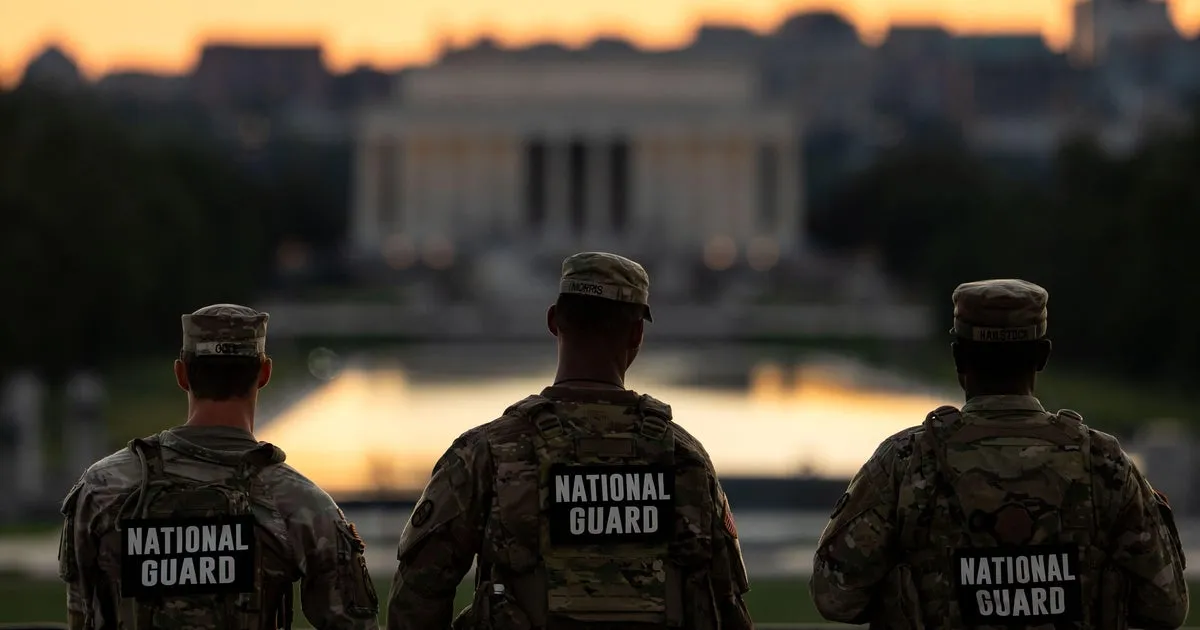
The recent deployment of the National Guard to Washington, D.C., has sparked heated discussions across the United States, with reports suggesting potential future deployments to other cities. This situation highlights a range of critical issues including crime, public safety, individual rights, and the extent of presidential powers. The reaction to this deployment varies significantly among different demographics, revealing deeper societal divides.
Supporters of President Trump's decision to deploy the National Guard predominantly come from his Republican base. They argue that this action helps reduce crime and enhances personal safety, even for those living outside urban areas. Many of these supporters express a willingness to see the National Guard deployed in various U.S. cities, regardless of their political affiliations. Conversely, a significant portion of the American public opposes this measure, fearing it could undermine their personal rights and freedoms. They question the effectiveness of the National Guard in crime reduction, believing it may not contribute to their overall safety.
Interestingly, geographical location influences opinions on the National Guard's deployment. Residents of urban areas generally oppose sending troops to other cities, while many in rural regions favor such actions. However, it's essential to note that partisanship plays a more substantial role in shaping views than geography. Many individuals who believe the National Guard can reduce crime still oppose its deployment, suspecting that Trump’s motives are politically driven rather than focused on crime prevention.
A common ground among Americans, irrespective of their stance on the deployment, is the belief that both the president and local leaders, such as mayors or governors, should have the authority to deploy the National Guard. However, there is a notable reluctance among many—particularly those opposed to the deployment—to grant this power exclusively to the president. The consensus suggests a preference for local control over such military actions.
Public opinion on presidential actions significantly influences overall approval ratings. Supporters of President Trump are primarily focused on immigration and deportation policies, which they prioritize over economic issues like inflation. The recent National Guard deployments appear to shift political focus away from inflation, potentially benefiting Trump’s approval ratings within his base. Currently, his Republican approval stands above 90%, with overall approval stabilizing after previous declines.
Despite favorable opinions in some areas, economic matters remain a challenge for Trump. Many Americans report feeling financially strained due to tariffs, with four in ten indicating they are purchasing fewer items because of these policies. Support for tariffs has been gradually declining, predominantly among non-Republicans. However, a significant majority of Republicans—about 70%—believe that Americans should be willing to pay higher prices to support Trump's trade policies, regardless of their income levels.
Americans advocate for a Federal Reserve that operates independently from presidential influence. Within the GOP, there is a noticeable divide; MAGA Republicans favor a Federal Reserve that aligns more closely with Trump’s guidance compared to their non-MAGA counterparts. Furthermore, not all Republicans support the notion of Trump replacing Fed members who disagree with him.
The ongoing discussions surrounding the National Guard deployment and economic policies raise important questions about executive power. Generally, a majority of Americans perceive Trump as attempting to expand presidential powers, a sentiment that does not align with their preferences. While Democrats view his efforts as a means to centralize government control, Republicans tend to interpret them as attempts to enhance operational efficiency.
This report is based on a CBS News/YouGov survey, which included a nationally representative sample of 2,385 U.S. adults interviewed from September 3-5, 2025. The margin of error for this survey is ±2.5 points, ensuring a reliable snapshot of public opinion on these critical issues.